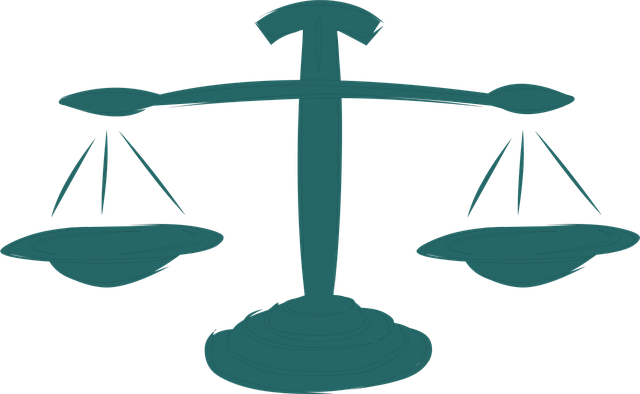Recent Class Action Lawsuits in Civil Law have transformed healthcare litigation, tackling complex patient care issues, medical malpractice, and provider liability. These cases impact patient rights, healthcare standards, and corporate accountability, demanding understanding from legal professionals and individuals. Proactive risk management, specialized legal teams, and staying informed about outcomes are crucial for providers to navigate these suits effectively, balancing legal battles with patient welfare. High-profile lawsuits have shaped the industry, fostering discussions on transparency, accountability, and stricter regulations.
In the dynamic landscape of healthcare, understanding legal complexities is paramount. This comprehensive guide delves into the intricate world of healthcare lawsuits, focusing on civil actions that shape the industry. From common issues like medical malpractice and patient privacy breaches to strategic defense mechanisms, we explore the far-reaching effects of class action suits on patient care access. Through key case studies of recent high-profile cases, this article offers valuable insights into navigating today’s challenging legal environment for healthcare providers.
- Understanding Healthcare Lawsuits: A Comprehensive Guide
- Common Issues Leading to Civil Lawsuits in Healthcare
- Strategies for Defense: Protecting Healthcare Providers
- Impact of Class Action Suits on Patient Care Access
- Key Case Studies: Recent High-Profile Healthcare Lawsuits
Understanding Healthcare Lawsuits: A Comprehensive Guide

Healthcare Lawsuits have become increasingly complex, especially with the rise of high-stakes cases and recent class action lawsuits in civil law. These legal battles often involve intricate issues related to patient care, medical malpractice, and healthcare provider liability. Understanding the nuances of such cases is essential for both legal professionals and individuals navigating healthcare systems.
In today’s digital age, where information flows freely, these lawsuits can have far-reaching implications. They shape the future of patient rights, healthcare standards, and corporate accountability. The outcome of prominent cases can influence regulatory changes and even impact a provider’s ability to practice. Therefore, a comprehensive guide to navigating healthcare litigation is crucial for ensuring transparency, achieving extraordinary results in defense or plaintiff roles, and ultimately, protecting the interests of all stakeholders involved, especially in light of potential general criminal defense scenarios.
Common Issues Leading to Civil Lawsuits in Healthcare

In the dynamic landscape of healthcare, a myriad of complex issues can lead to civil lawsuits, often resulting in significant financial and reputational consequences for involved institutions. Recent class action lawsuits in civil law highlight several recurring themes—from medical malpractice and patient safety breaches to billing disputes and non-compliance with regulatory frameworks. These legal battles frequently arise due to errors in diagnosis or treatment, inadequate informed consent processes, and instances of negligent care.
Moreover, the rise of white collar and economic crimes within healthcare organizations has contributed to an unprecedented track record of civil litigation. Mismanagement of patient records, fraudulent billing practices, and unethical distribution of prescription drugs are among the most common triggers for lawsuits. Achieving extraordinary results in these cases is not merely about winning; it’s about ensuring accountability, implementing systemic changes, and ultimately enhancing patient care standards across the industry.
Strategies for Defense: Protecting Healthcare Providers

In recent years, healthcare providers have faced an increasing number of challenges from class action lawsuits in civil law. These high-stakes cases often stem from allegations of negligence, breach of contract, or violations of patient rights. To protect themselves, healthcare organizations must employ robust defense strategies tailored to their unique circumstances. One effective approach is proactive risk management, which involves implementing stringent protocols and procedures to prevent legal issues before they arise. Regular audits, staff training, and transparent communication channels can significantly strengthen defenses in potential lawsuits.
Moreover, building a solid legal team with expertise in healthcare law is paramount. This specialized knowledge enables attorneys to navigate complex regulatory environments and craft effective defense strategies. By engaging corporate and individual clients alike, reputable healthcare law firms can offer valuable insights into emerging legal trends and best practices. Furthermore, staying informed about recent class action lawsuits and their outcomes allows providers to anticipate potential vulnerabilities and make proactive adjustments, thereby fostering resilience in the face of legal challenges within philanthropic and political communities.
Impact of Class Action Suits on Patient Care Access

The increasing trend of class-action lawsuits in healthcare has significantly impacted patient care access, particularly in regions with limited medical resources. These legal actions often allege systemic issues within healthcare institutions, such as breaches of privacy, unfair billing practices, or negligence. As a result, healthcare providers may face substantial financial burdens and reputational damage, potentially hindering their ability to deliver quality care. Recent class-action lawsuits in civil law have shed light on the complex interplay between legal battles and patient welfare.
The aftermath of such lawsuits can disrupt the entire process, from initial investigations to settlement or trial. White-collar defense strategies become pivotal here, as they aim to protect healthcare entities and their leaders from severe consequences. By navigating all stages of the investigative and enforcement process diligently, legal teams can safeguard their clients’ interests, ensuring that patient care remains a top priority even amidst these challenges.
Key Case Studies: Recent High-Profile Healthcare Lawsuits

In recent years, healthcare law firms have been at the forefront of several high-profile lawsuits that have shaped the industry. One notable trend is the rise of recent class action lawsuits in civil law, targeting major healthcare providers and pharmaceutical companies for alleged misconduct. These high-stakes cases often attract significant media attention and have profound implications for patient rights and industry regulations.
Across the country, prominent examples include suits against large insurance companies for unfair billing practices and controversies surrounding clinical trials. The impact of these lawsuits extends beyond financial settlements; they prompt discussions about transparency, accountability, and the ethical obligations of healthcare institutions. Furthermore, they often spark increased public awareness and encourage philanthropic and political communities to advocate for stricter regulations and improved patient care.
Healthcare law firms play a pivotal role in navigating complex legal landscapes, from managing individual lawsuits to defending against high-profile class action suits. By understanding common issues and implementing robust defense strategies, healthcare providers can mitigate risks and ensure uninterrupted patient care. Recent class action lawsuits in civil law highlight the need for proactive legal management, emphasizing the importance of adhering to regulatory guidelines and fostering a culture of compliance within healthcare organizations. As the medical landscape evolves, so too will the legal challenges, necessitating continuous adaptation and expertise from these specialized law firms.






